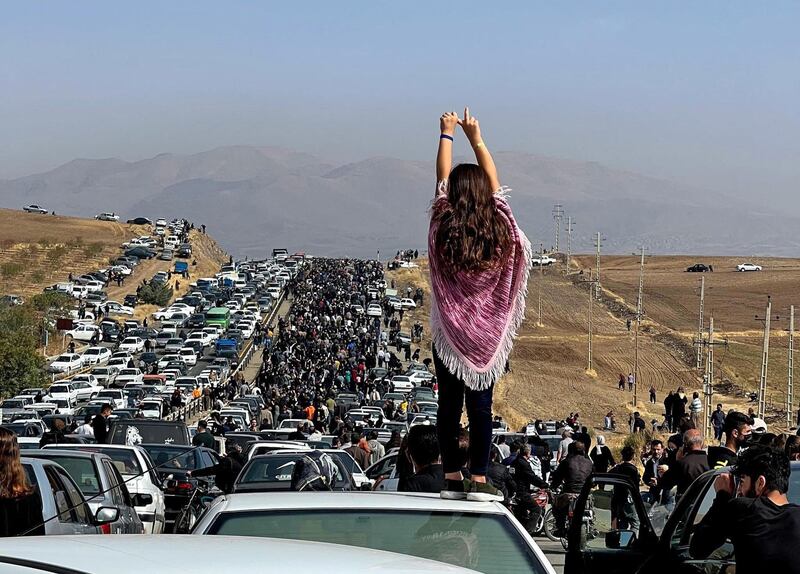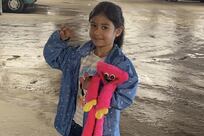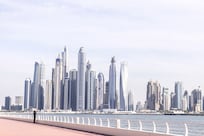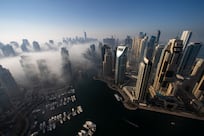Locals in western Iran fear an impending security crackdown, with Islamic Revolutionary Guard Corps units moved to Kurdish cities and barricades erected ahead of the first-year anniversary of the nationwide protests that rocked the country.
September 16 marks one year since the death Kurdish woman Mahsa Amini, 22, in morality police custody.
She had been detained in Tehran days earlier for wearing her hijab “improperly”.
Anti-regime demonstrations erupted after her funeral and spread across the entire country, prompting a crackdown from Tehran that killed about 500 people and injured thousands more.
Human rights organisations have reported IRGC units sent to towns and cities across the Kurdish-majority west, where the demonstrations began, in anticipation of protests planned for this weekend.
The Paris-based Kurdistan Human Rights Network said IRGC units have been sent from Urmia to the city of Mahabad, while the Hengaw Organisation for Human Rights reported “thousands” of IRGC special units sent to Ms Amini's hometown of Saqqez, and military vehicles deployed and illegal checkpoints erected in Sanandaj.
“In recent days, the Islamic Republic has sent many military forces from provincial capitals and neighbouring provinces to suppress possible protests on the anniversary of the assassination of Zhina [Mahsa] and the beginning of the uprising to various cities of Kurdistan, including Saqqez, Bukan, Mahabad, and Marivan,” KHRN said, uploading a video of military convoys en route to Mahabad.
It comes amid reports of a protester killed in the city of Karaj, close to Tehran.
Rights groups citing the protester's family said the Kurdish man, identified as Hamed Bagheri, was chanting anti-regime slogans and had called for protests when he was shot by government forces in the Golshahr neighbourhood.
The judiciary's Mizan news outlet confirmed his death but said he had been shot by police after threatening people with a machete.
An exiled activist with family in Kurdistan province told The National the situation is tense, with frequent internet power cuts and a strong military presence.
Despite recent threats made against his family, his relatives plan on demonstrating on Saturday, he said.
“People are not afraid of anything any more. They say 'we will die, but we will not be oppressed any more',” said the young man, who wished to remain anonymous.
“The only thing Iran wants from the international community is to put the IRGC off the terrorist list.”
“Hengaw underscores that the current situation in several Kurdish cities closely resembles what is commonly referred to as a 'state of war',” it said on social media platform X, formerly known as Twitter.
“This raises concerns of potential widespread repression against Kurdish residents in the days ahead,” it added.
Kurdish and minority areas of Iran are often targets for regime suppression and came under particularly brutal force during last year's crackdown.
Activists have told The National the majority of the hundreds of protesters blinded by security agents hail from Kurdish and Baloch areas in the west and south-east of Iran.
The Baloch city of Zahedan has continued to stage protests every week after Friday prayers, despite demonstrations largely dying down in other parts of the country.
The city saw more than 60 people killed in one day in the bloodiest single attack on protesters during the movement.
Tehran, meanwhile, has said the IRGC has discovered the largest shipment yet of “riot equipment” in the north-west.
The IGRC confiscated thousands of tasers, knives and batons, the semi-official Tasnim news agency reported, vowing to deal “decisively” with rioters – a term Tehran has used to describe protesters.
Protesters have been blamed for the deaths of several IRGC members and Basij paramilitary agents during the protests, with several executed after swift, closed-door trials.
Rights groups have denounced these as illegitimate trials.







